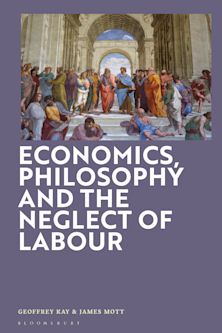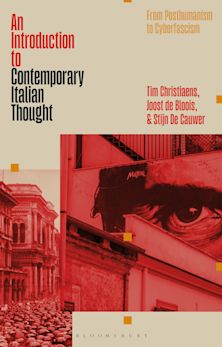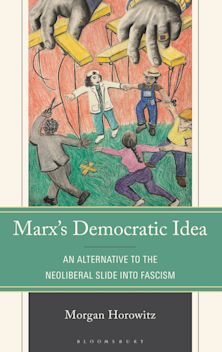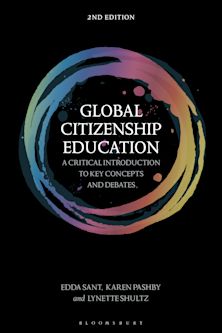- Home
- ACADEMIC
- Philosophy
- Social and Political Philosophy
- The Philosophy of Documentary Film
The Philosophy of Documentary Film
David LaRocca (Anthology Editor) , Diana Allan (Contributor) , Rick Altman (Contributor) , Ariella Azoulay (Contributor) , Mieke Bal (Contributor) , Noël Carroll (Contributor) , Stanley Cavell (Contributor) , Gregory Currie (Contributor) , William Day (Contributor) , Keith Dromm (Contributor) , K. L. Evans (Contributor) , Michael Fried (Contributor) , Elan Gamaker (Contributor) , Dan Geva (Contributor) , Tom Gunning (Contributor) , Erika (Contributor) , Werner Herzog (Contributor) , Karen D. Hoffman (Contributor) , Selmin Kara (Contributor) , David LaRocca (Contributor) , Scott MacDonald (Contributor) , Jennifer L. McMahon (Contributor) , Bill Nichols (Contributor) , Claudia Pederson (Contributor) , V. F. Perkins (Contributor) , Carl Plantinga (Contributor) , William Rothman (Contributor) , Vivian Sobchack (Contributor) , Lars von Trier (Contributor) , Thomas Vinterberg (Contributor) , Charles Warren (Contributor) , Bernadette Wegenstein (Contributor) , Linda Williams (Contributor) , Patricia R. Zimmermann (Contributor) , Timothy Corrigan (Foreword)
The Philosophy of Documentary Film
David LaRocca (Anthology Editor) , Diana Allan (Contributor) , Rick Altman (Contributor) , Ariella Azoulay (Contributor) , Mieke Bal (Contributor) , Noël Carroll (Contributor) , Stanley Cavell (Contributor) , Gregory Currie (Contributor) , William Day (Contributor) , Keith Dromm (Contributor) , K. L. Evans (Contributor) , Michael Fried (Contributor) , Elan Gamaker (Contributor) , Dan Geva (Contributor) , Tom Gunning (Contributor) , Erika (Contributor) , Werner Herzog (Contributor) , Karen D. Hoffman (Contributor) , Selmin Kara (Contributor) , David LaRocca (Contributor) , Scott MacDonald (Contributor) , Jennifer L. McMahon (Contributor) , Bill Nichols (Contributor) , Claudia Pederson (Contributor) , V. F. Perkins (Contributor) , Carl Plantinga (Contributor) , William Rothman (Contributor) , Vivian Sobchack (Contributor) , Lars von Trier (Contributor) , Thomas Vinterberg (Contributor) , Charles Warren (Contributor) , Bernadette Wegenstein (Contributor) , Linda Williams (Contributor) , Patricia R. Zimmermann (Contributor) , Timothy Corrigan (Foreword)
This product is usually dispatched within 3 days
- Delivery and returns info
-
Free US delivery on orders $35 or over
You must sign in to add this item to your wishlist. Please sign in or create an account
Description
The spirit that founded the volume and guided its development is radically inter- and transdisciplinary. Dispatches have arrived from anthropology, communications, English, film studies (including theory, history, criticism), literary studies (including theory, history, criticism), media and screen studies, cognitive cultural studies, narratology, philosophy, poetics, politics, and political theory; and as a special aspect of the volume, theorist-filmmakers make their thoughts known as well. Consequently, the critical reflections gathered here are decidedly pluralistic and heterogeneous, inviting—not bracketing or partitioning—the dynamism and diversity of the arts, humanities, social sciences, and even natural sciences (in so far as we are biological beings who are trying to track our cognitive and perceptual understanding of a nonbiological thing—namely, film, whether celluloid-based or in digital form); these disciplines, so habitually cordoned off from one another, are brought together into a shared conversation about a common object and domain of investigation.
This book will be of interest to theorists and practitioners of nonfiction film; to emerging and established scholars contributing to the secondary literature; and to those who are intrigued by the kinds of questions and claims that seem native to nonfiction film, and who may wish to explore some critical responses to them written in engaging language.
Table of Contents
At the Center of Our Age
Timothy Corrigan
Introduction
Representative Qualities and Questions of Documentary Film
David LaRocca
Part I: The Medium, Morals, and Metaphysics of Documentary Film
Chapter 1: What Photography Calls Thinking: Theoretical Considerations on the Power of the
Photographic Basis of Cinema
Stanley Cavell
Chapter 2: Cinematic Representation and Spatial Realism: Reflections After/Upon André Bazin
Noël Carroll
Chapter 3: Documentary Traces: Film and the Content of Photographs
Gregory Currie
Chapter 4: The Limits of Appropriation: Subjectivist Accounts of the Fiction/Nonfiction
Distinction
Carl Plantinga
Chapter 5: Inscribing Ethical Space: Ten Propositions on Death and Documentary
Vivian Sobchack
Part II: Strategies and Styles of Documenting with Film
Chapter 6: Before Documentary: Early Nonfiction Films and the “View” Aesthetic
Tom Gunning
Chapter 7: Ruminating on the Ideologies of Nature Film
Scott MacDonald
Chapter 8: Jean Rouch's Cine-trance and
Product details
| Published | Oct 28 2019 |
|---|---|
| Format | Paperback |
| Edition | 1st |
| Extent | 644 |
| ISBN | 9781498504539 |
| Imprint | Lexington Books |
| Dimensions | 9 x 6 inches |
| Series | The Philosophy of Popular Culture |
| Publisher | Bloomsbury Publishing |
About the contributors
Reviews
-
The Philosophy of Documentary Film undoubtedly bears witness to the complexity and the density of its subject matter. The texts included in the volume cover a wide range of topics and approaches, and they raise multiple philosophical questions inherent to documentary films.
Cinema: Journal of Philosophy and the Moving Image
-
This anthology is a gem! Bringing together documentary filmmakers, philosophers, and film theorists, this volume will be an important resource for all those interested in this important genre of filmmaking, be they students, professors, scholars, or just serious film viewers. Get it for yourself and see!
Thomas E. Wartenberg, Mount Holyoke College
-
With the pervasive and facile use of digital manipulation of images in public and private communications, few questions are more important than the question raised by this richly rewarding book—‘What is real and what is fake?’ In 1960 my executive producer at NBC warned us to be careful of what we put on the screen because he said ‘people will believe it.’ David LaRocca in his fulsome and well-articulated introduction reminds us that a critical mind has never been more essential to acquire ‘a fuller, truer, experience of reality.’ As a successful documentarian for over 60 years, I know of no other book that is more useful in the pursuit of that goal.
Bill Jersey, winner of two Peabodys, Emmys, and Oscar nominations
-
This is the collection of essays on documentary film that I have been waiting for. It brings together many of the best classic pieces on documentary theory and practice, and a trilling assortment of new essays by philosophers, film scholars devoted to aesthetic issues and close reading, and documentary filmmakers who teach. The writing throughout is of the highest order, and the promise of genuine (as opposed to tinker toy) philosophical inquiry is amply kept. David LaRocca has done an exemplary job of editing, and his lengthy overview essay which serves as the volume's Introduction is incisive and indispensable.
George Toles, University of Manitoba
-
As far as documentary film and philosophy are concerned, David LaRocca has summoned a cloud of reliable witnesses and all the usual suspects, or so it seems. Once readers enter the critical conversations that these estimable writers provoke and sustain, the criteria for reliability and suspicion themselves become productively volatile, and that volatility will lead readers to surprising insights and reflections. From considerations of Plato to Cavell and well beyond, these memorable essays fruitfully explore both truth and make believe in documentary film, as well as the manifold challenges of discerning the elusive differences between them.
Lawrence Rhu, University of South Carolina
-
Timely. Vital. Engaging. An essential companion to any thinking about documentary cinema. LaRocca is especially attuned not just to the voices at the heart of theoretical debates but, to my liking, also to those who push out into the practice and craft of documentary filmmaking.
Paul Cronin, School of Visual Arts

ONLINE RESOURCES
Bloomsbury Collections
This book is available on Bloomsbury Collections where your library has access.



































